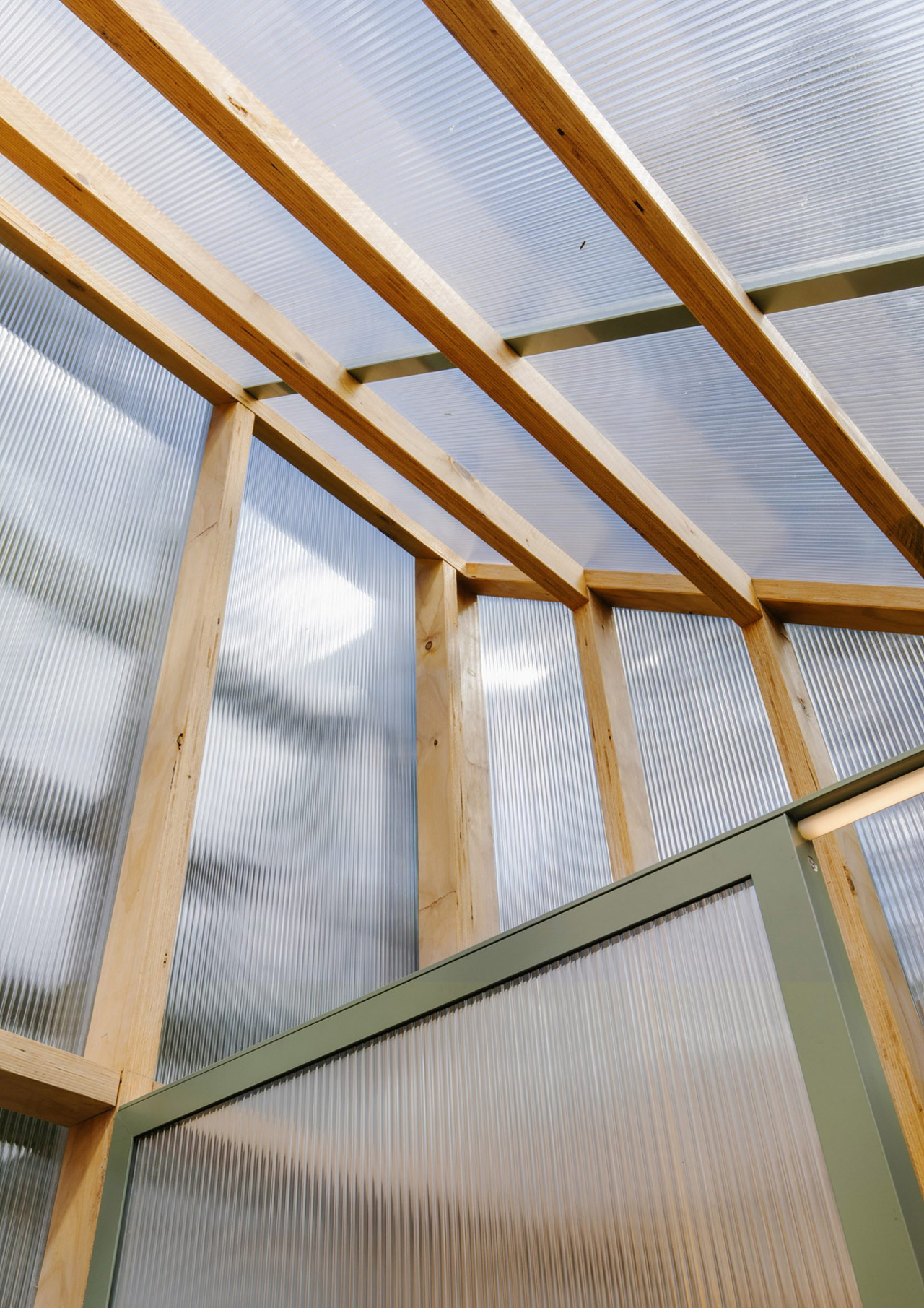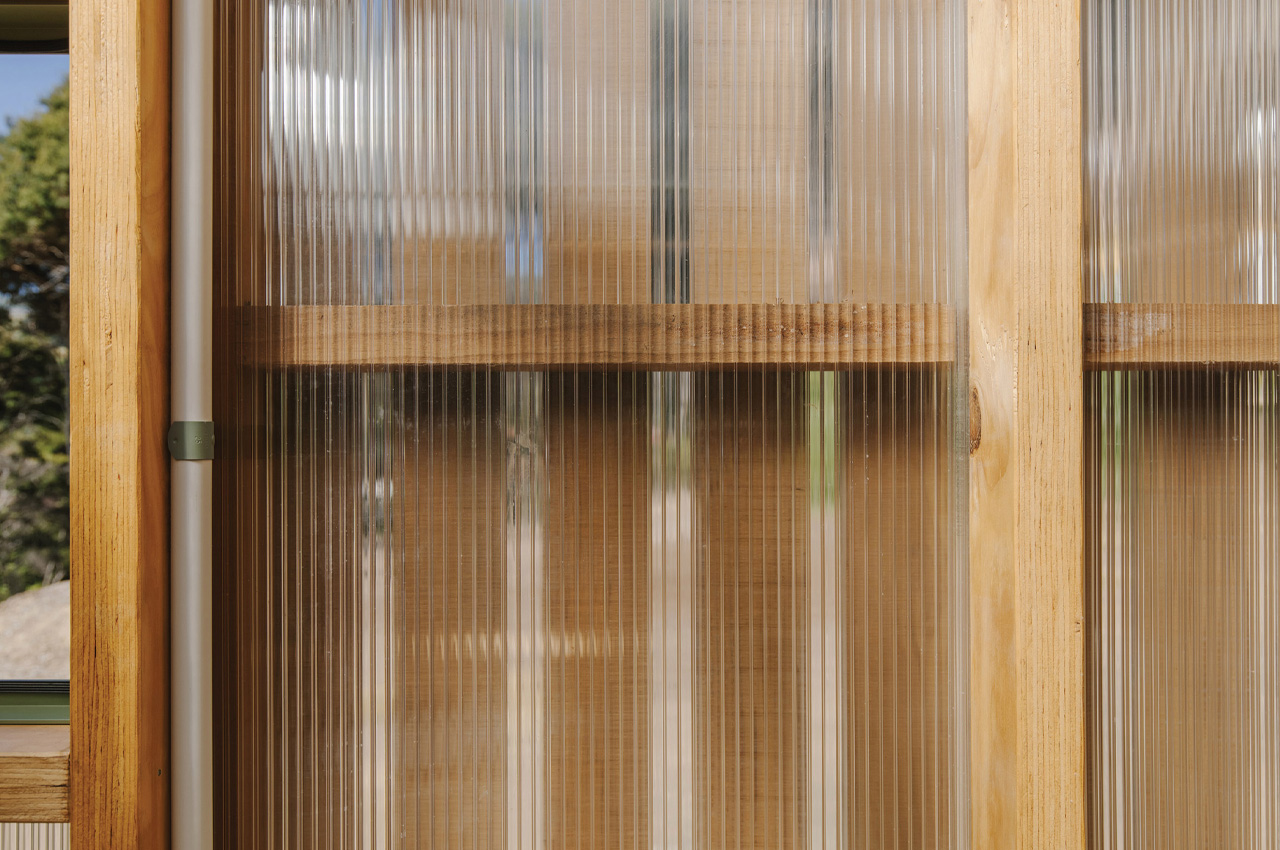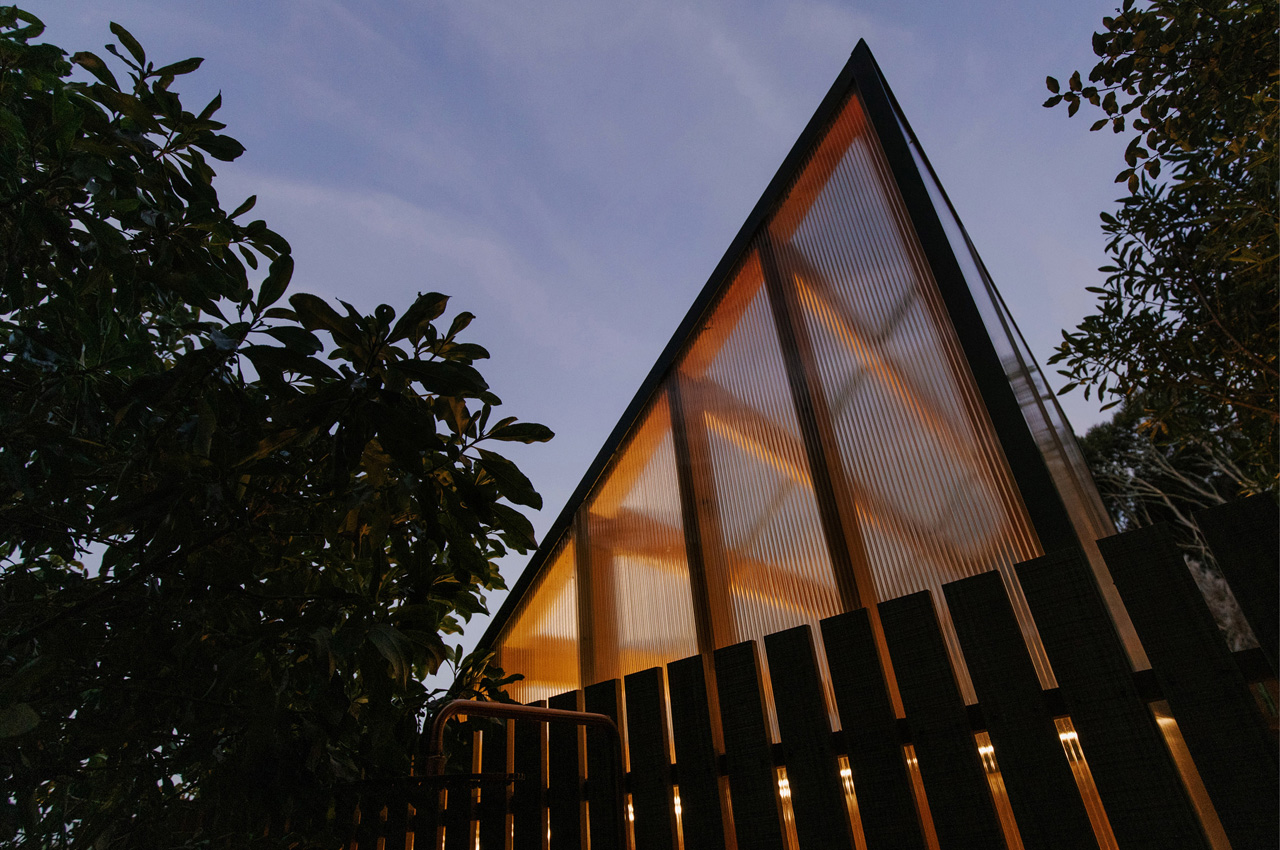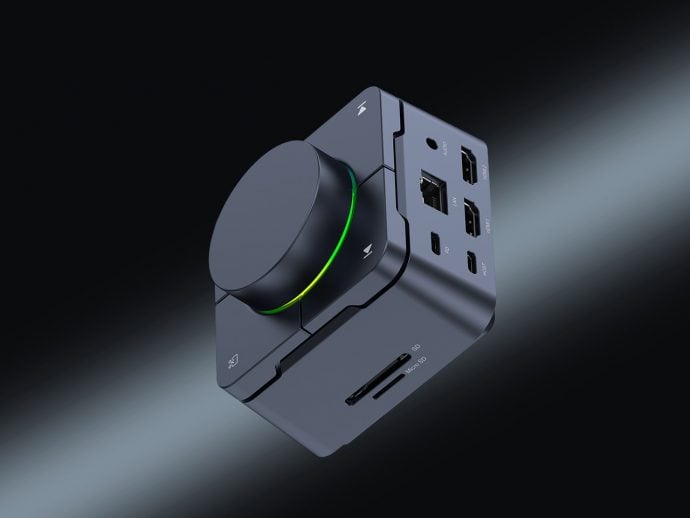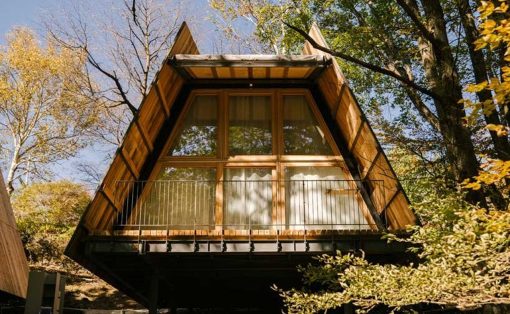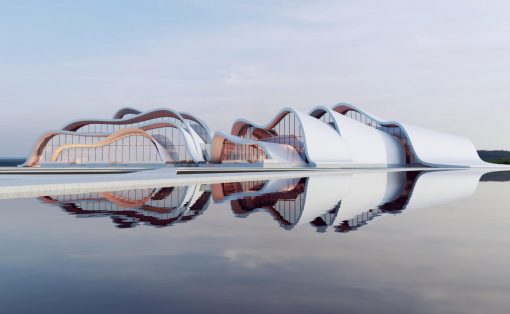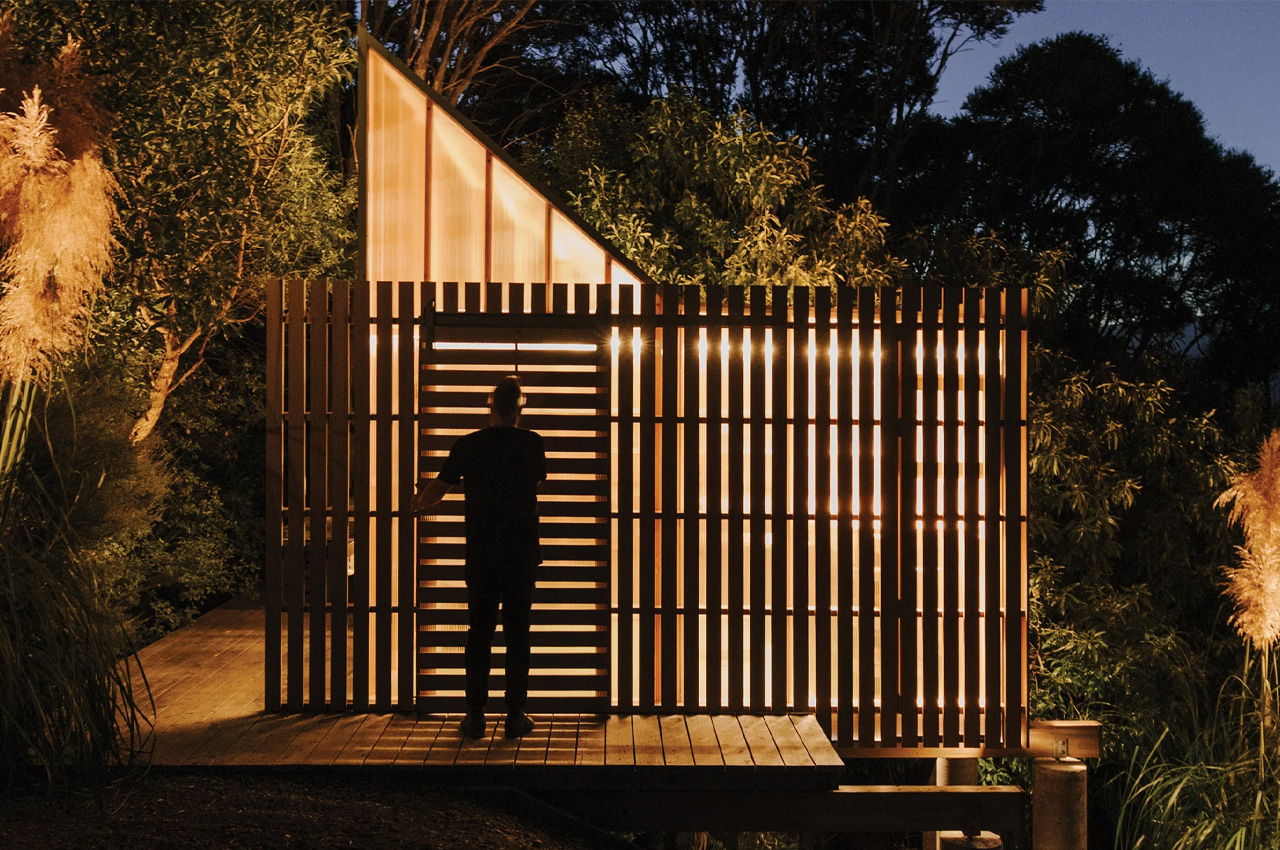
Architecture studio Fabric designed a shed in Akaroa, New Zealand. Called, the Nightlight, the shed is wrapped with sleek timber slats that are inspired by the surrounding treeline. The 10 square meter shed is nestled in a clearing and is surrounded by kãnuka trees. The interesting feature of the shed is that it transforms into a light sculpture at night!
Designer: Fabric
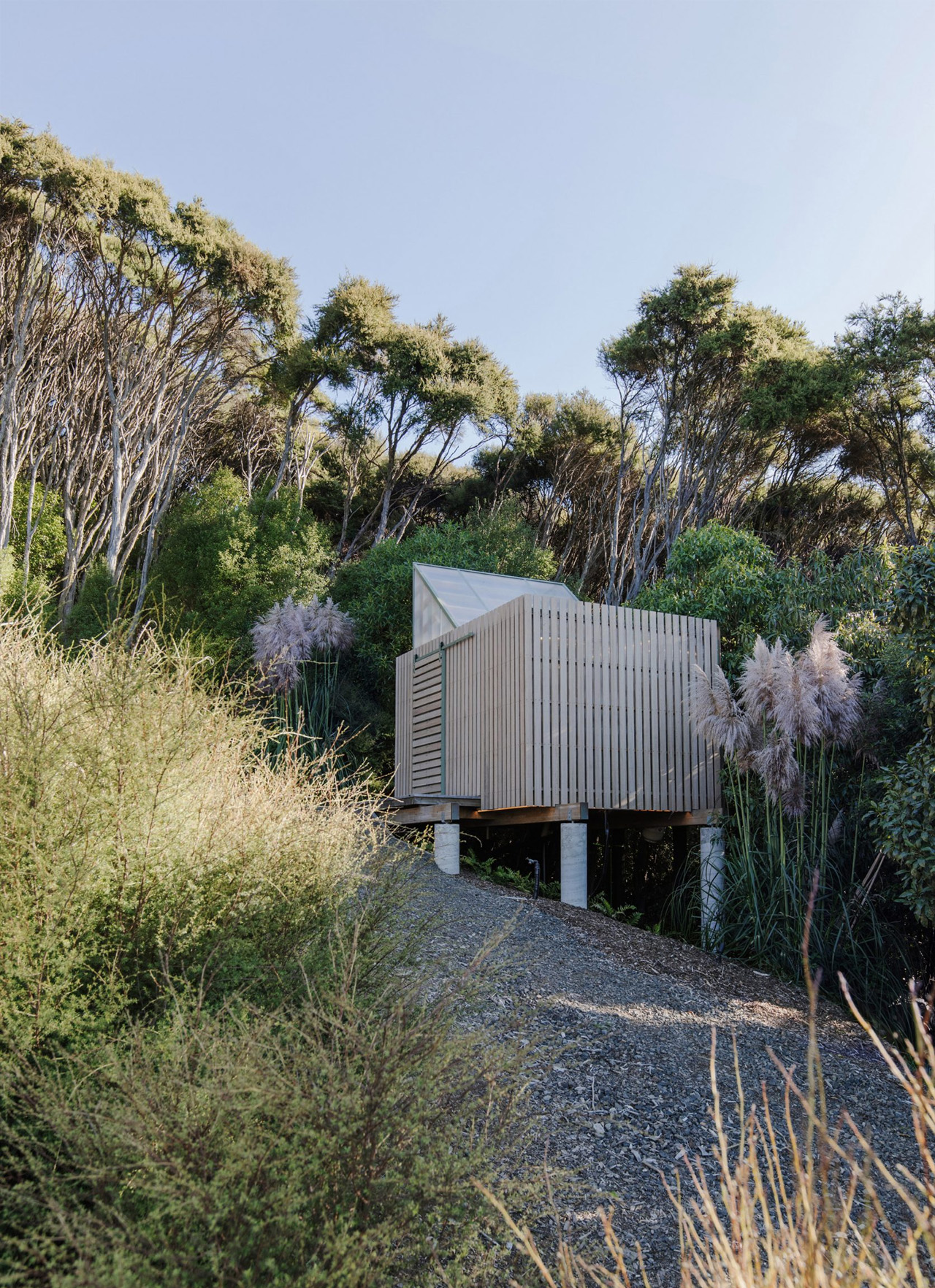
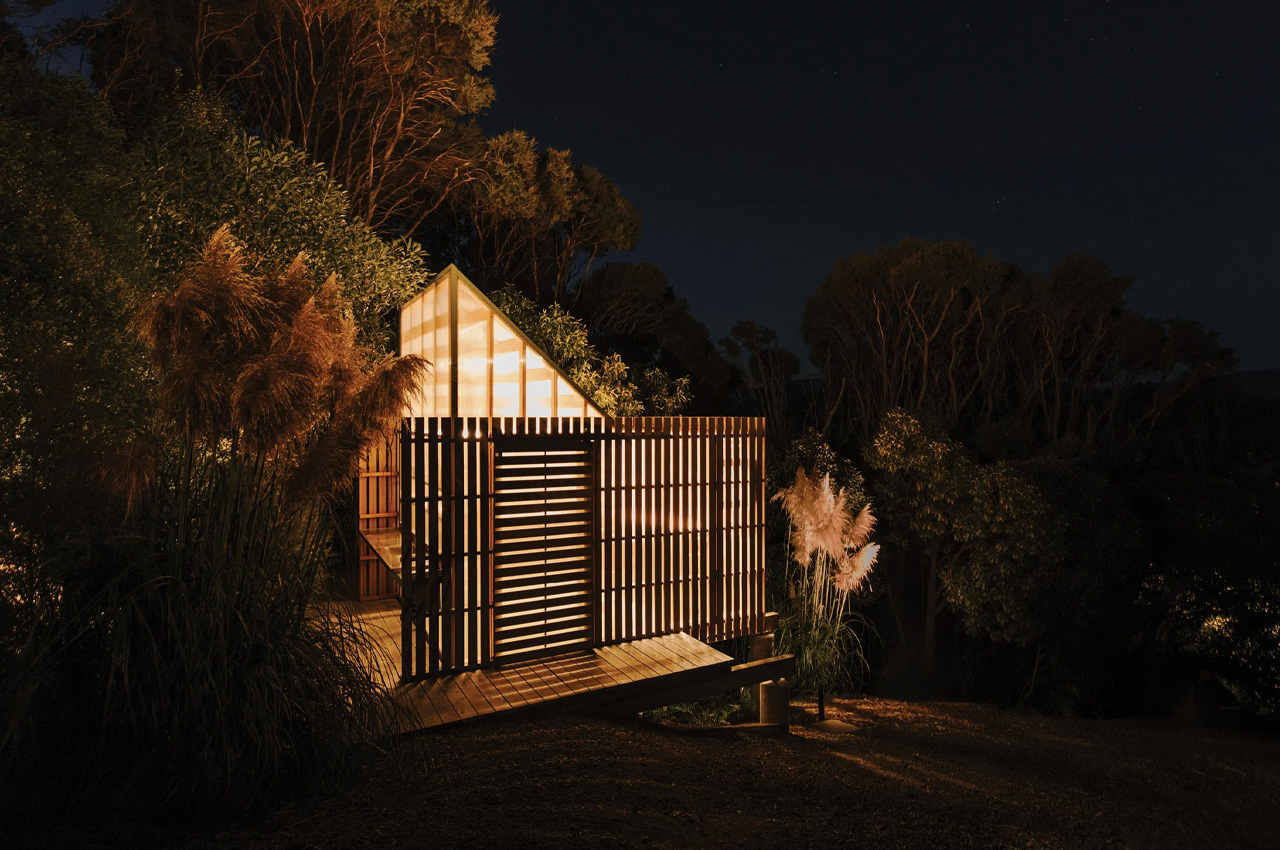
The compact shed is part of a plan to transform the whole site into a home. The shed was designed to store items for the house which would be built in the future, while also serving as a glowing structure that can be viewed from the outdoor lounge spaces. The shed features a mono-pitched form which is translucent in nature and is made from polycarbonate. The shed has been elevated from the sloping ground with the help of concrete piles.
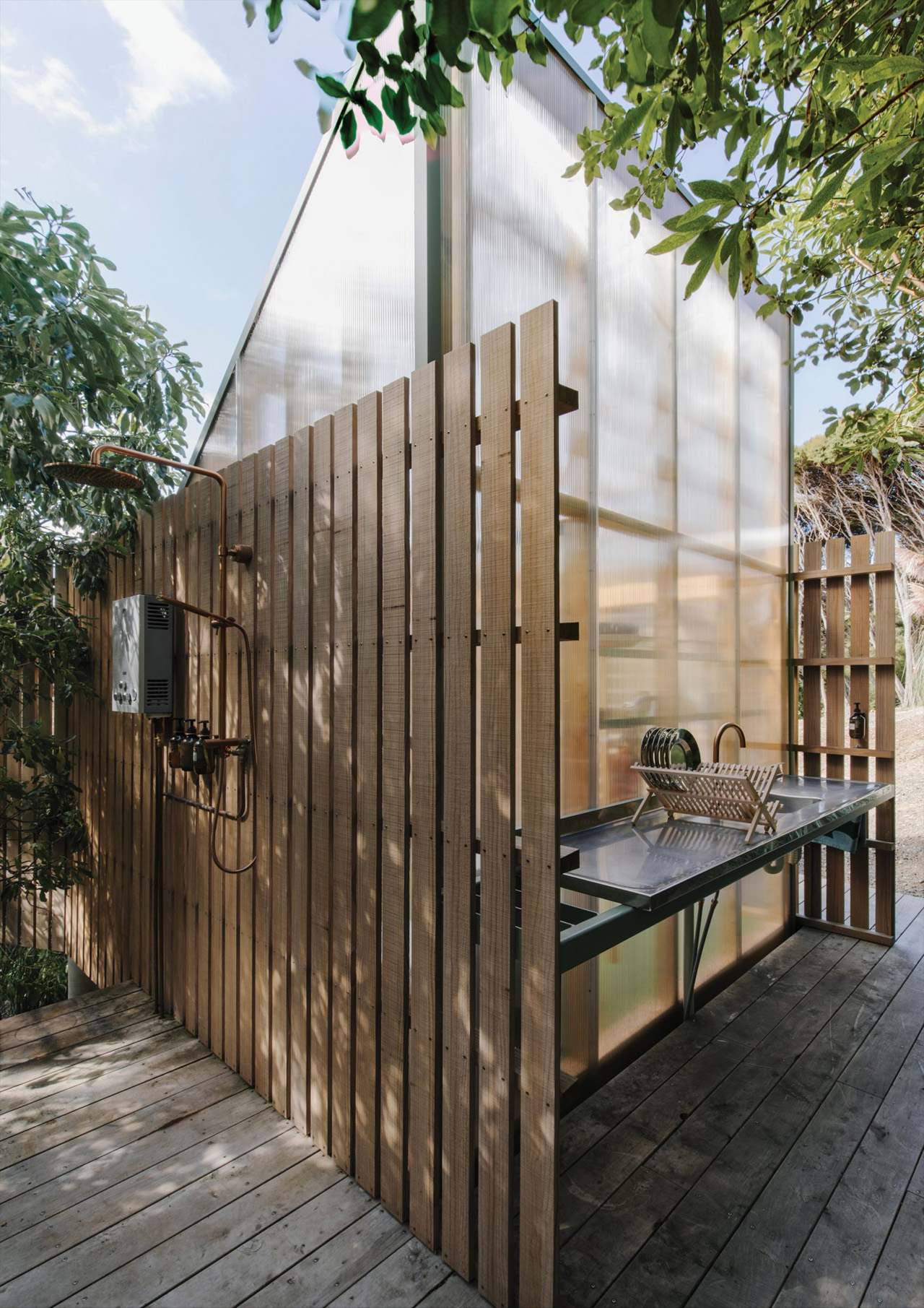
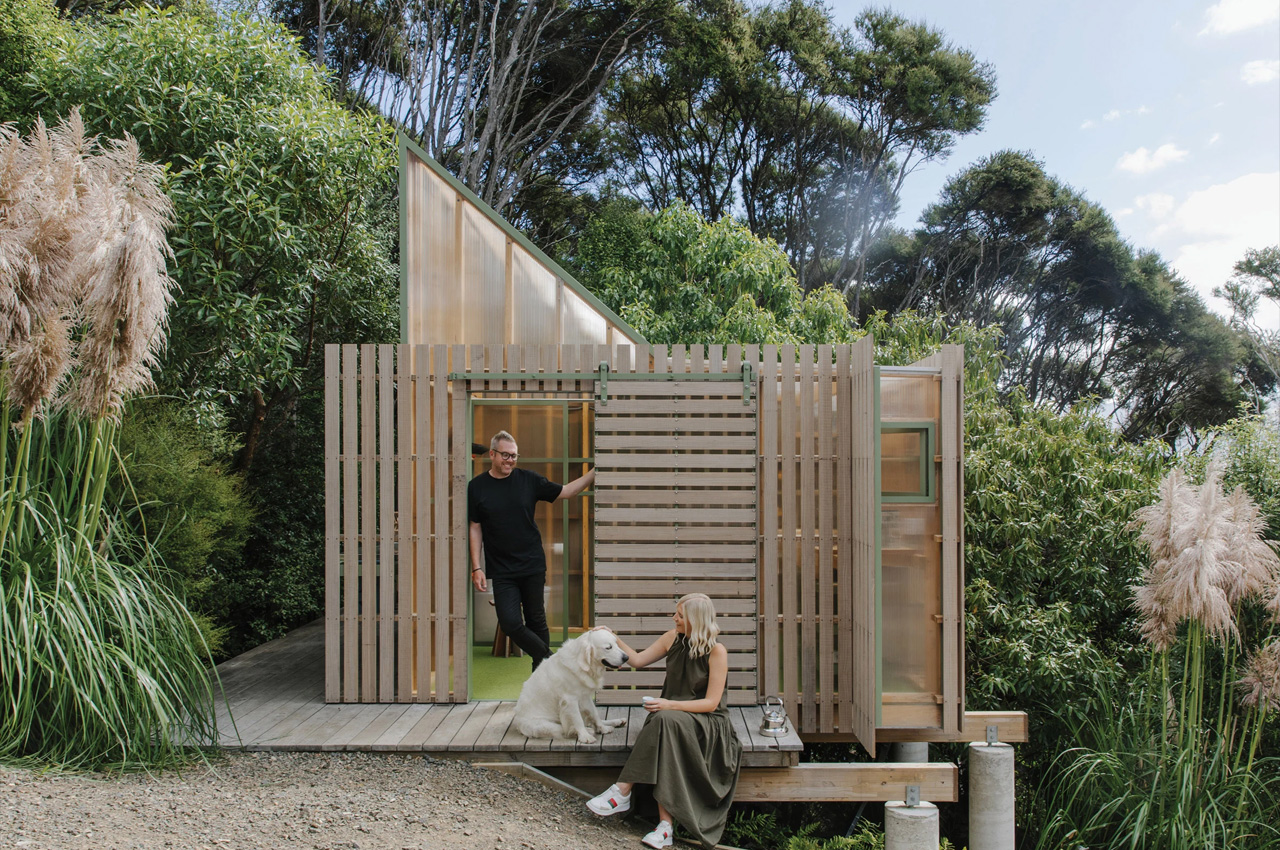
“Rather than locating this building out of sight like a typical shed or using it only for its services, Nightlight has been reimagined as a light sculpture that will proudly be seen from the future outdoor living space. The filtered light seen glowing between the slats at night is a contrasting aesthetic to the minimalist facade seen throughout the day,” said Fabric.
When illuminated from within, the light from the interiors of the shed radiates through the empty space in between the sleek timber slats, which subtly surrounds the exterior of the structure. The shed has a rather minimal footprint, and it was designed to be used as a workspace, outdoor kitchen, small bathroom, and storage area. The structure has been outfitted with both a toilet and a workbench. An external shower and sink have been added as well. The sleek timber slats were slathered with laminated veneer lumber (LVL) to make them stiff and sturdy, this ensured that fewer number of slats were required for the construction of the shed.
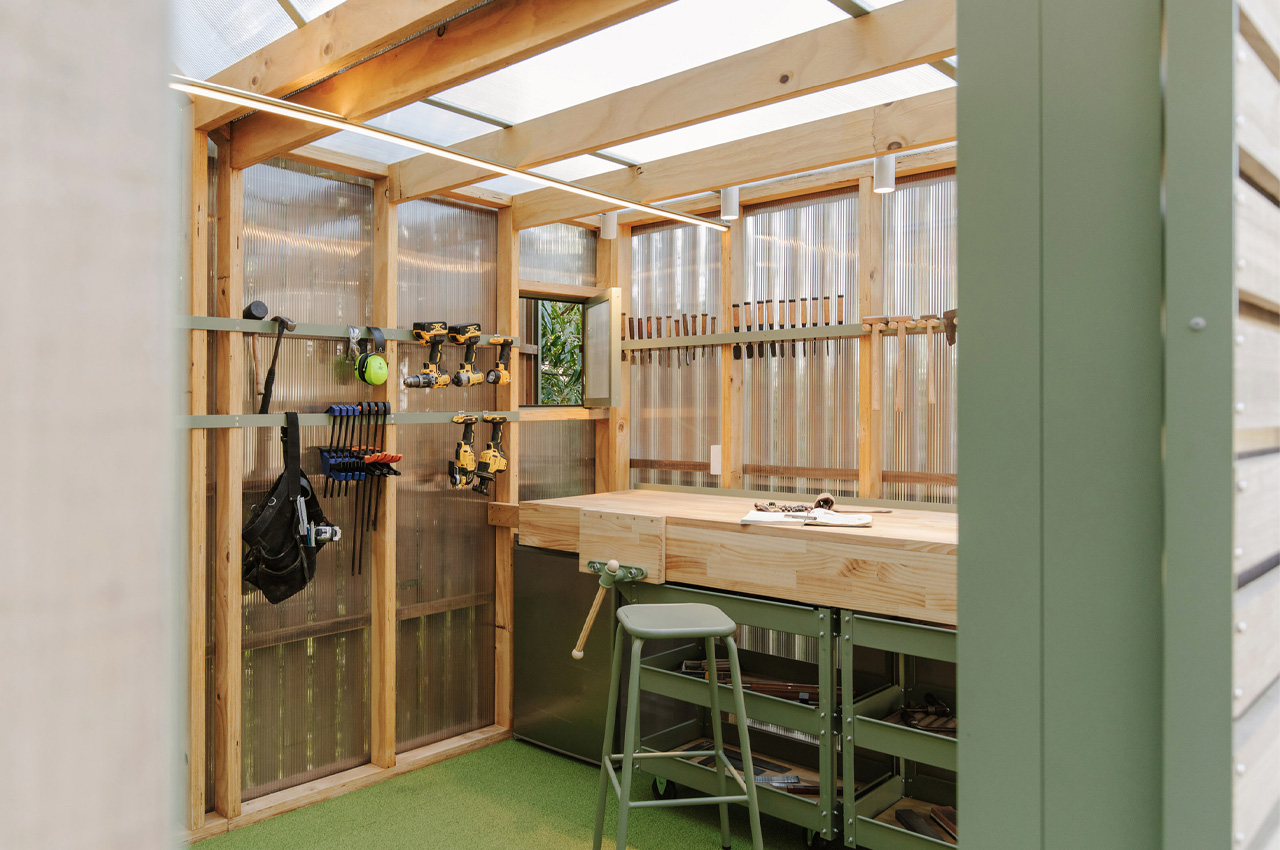
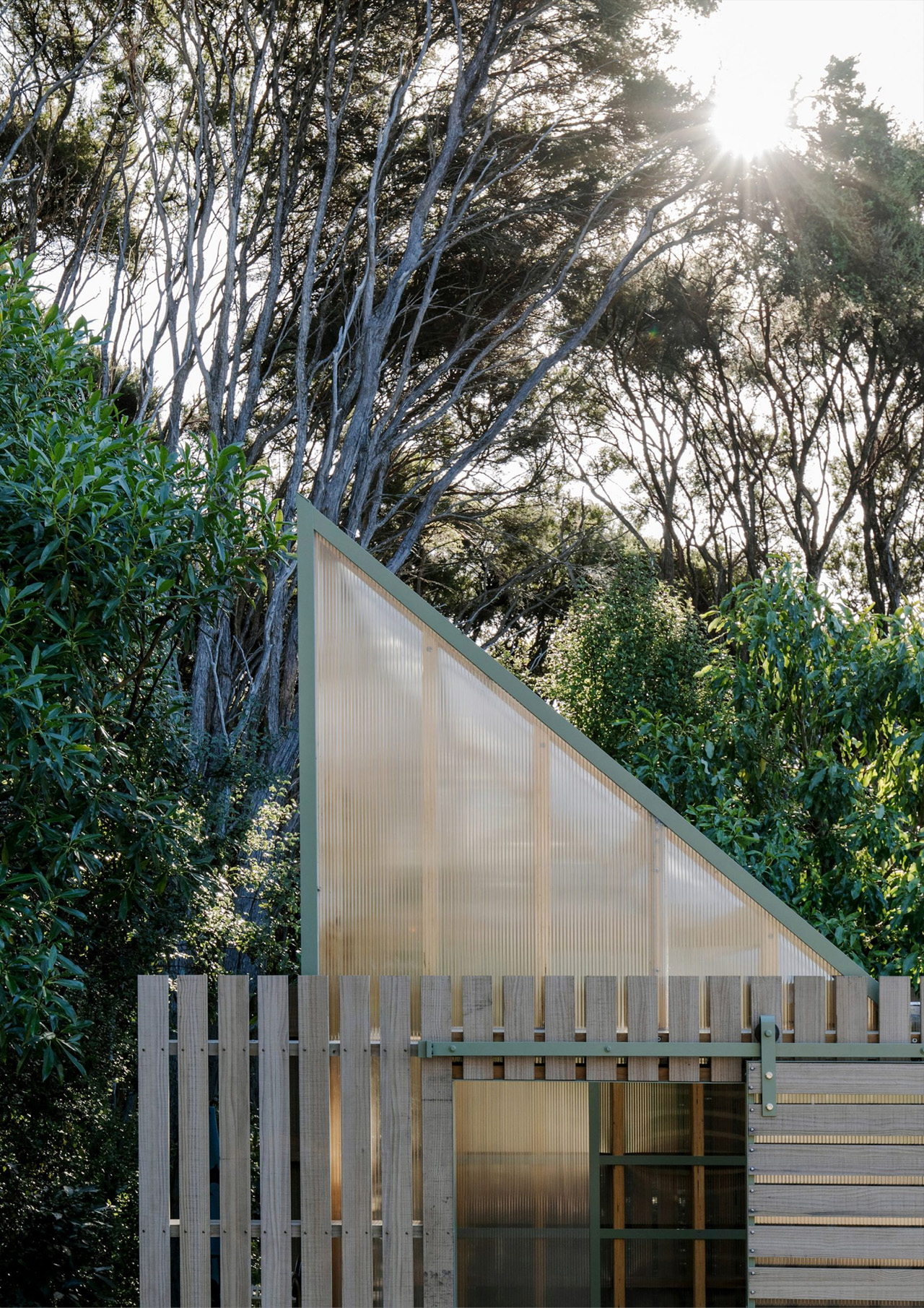
“All battens and slats were carefully lined up with the internal structure and used sparingly to allow a uniform pattern of glow at night. This critical geometry and alignment was a constant challenge throughout the build,” concluded Fabric. The timber planks were silvered in an attempt to resemble the surrounding kãnuka trees. The locally sourced macrocarpa wood used to build the external decking was silvered as well. Subtle muted green accents were added to the structure to help it further blend in with its surroundings.
